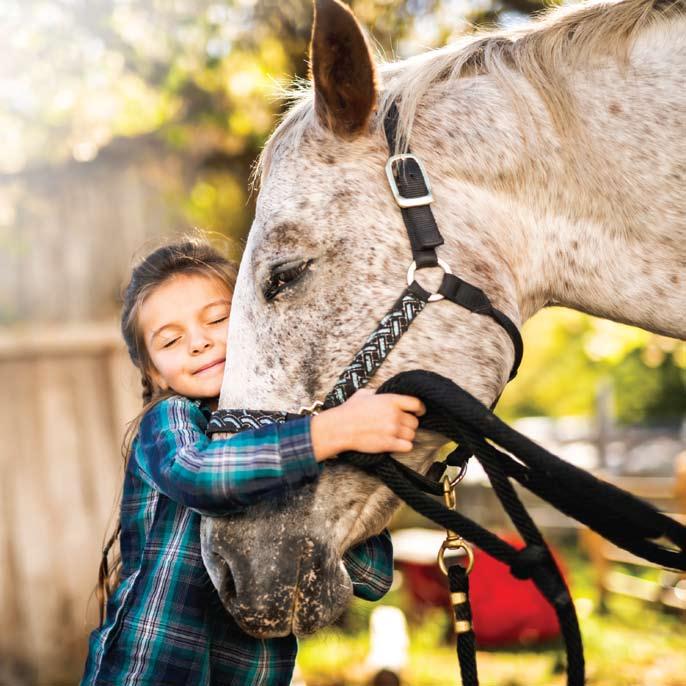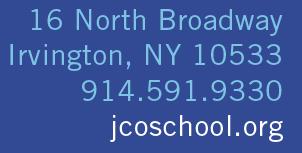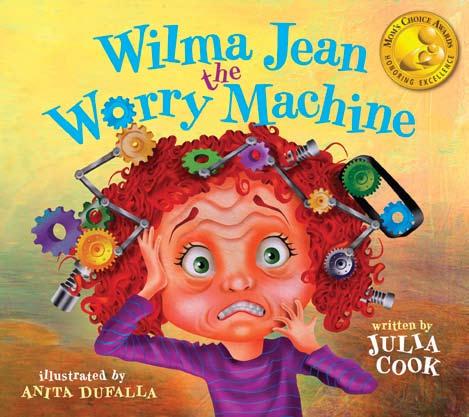

coNteNts
NewYorkFamily.com
Publisher: Clifford Luster
e xecutive Director: Donna Duarte-Ladd
AssociAte Publisher: Erin Brof
ADvertising Director:
Stacie Goldberg
DePuty eDitor: Jeannine Cintron
DigitAl eDitor: Kaitlyn Riggio
e vents MAnAger: Shara Levine
r e P orter: Barbara Russo
s enior ADviser: Susan Weiss
PArtnershi P MAnAgers: Lauren Alperin, Lauren Anchin, Joan Bergman, Mary Cassidy, Chris Cunnington, Lori Falco, Shelli
Goldberg-Peck, LynnMarie Hanley, Lisa Herlihy, Janine Mulé, Cara Roteman, Nina Spiegelman, Gwen Tomaselli
MArketing & s tr Ategy Director: Rosalia Bobé
sAles & MArketing coor D inAtor: Mykael Fields
MArketing AssistAnt: Tilejah Gilead
Art Director: Leah Mitch
Web Develo P er: Sylvan Migdal
g r AP hic Designers: Arthur Arutyunov, Connie Sulsenti
eD itors At l Arge:
Serena Norr, Cris Pearlstein
eD itoriAl contributors: Jana Beauchamp, Mia Salas
eD itoriAl i nterns: Bailey Germain, Brian Zhang
coNtact iNformatioN
ADvertising : (718) 260-4554
Advertising@NewYorkFamily.com
circul Ation: (718) 260-8336
Tina@NewYorkFamily.com
4 | When the next step is an ie P Missing milestones and an Individualized Educational Plan
6 | Mom stories
Things you may not know about that special needs parent
8 | learning Disabilities in children
Marker Learning, an organization dedicated to helping children- share their tips

10 | the b enefits of h orse therapy
For children with special needs, horse therapy can help with many physical, mental, and emotional needs

12 | 6 Ways to s upport s iblings of k ids with s pecial n eeds
Helping your child with special needs and your other children thrive

13 | u nderstanding Dental c are for k ids with s pecial n eeds
Dental patients with special needs require a special kind of care
14 | 10 k ids’ b ooks 10 titles whose protagonists have special needs and that fall under every genre of fiction
16 | s pecial n eeds Directory
ADD ress: New York Family Media/Schneps Media 1 MetroTech Center North, Third Floor Brooklyn, NY 11201
Presi D ent: Victoria Schneps-Yunis
ceo : Joshua Schneps
coo : Clifford Luster
New York Family has been awarded the PMA Gold Award for Excellence in Editorial and the Silver Award for Excellence in Design.
We are focused on optimal oral health while providing a safe, comfortable, and FUN environment – come check out our submarinethemed office space!
Our dentists have specialized training to work with special needs patients


Penny Resnick-Graulich, D.M.D
Emelie Preis, D.D.S.
Gabriela Ganoza Duron, D.D.S.
Fatina Shtivelman, D.D.S.

When the next step is an IEP
Missing milestones and an Individualized Educational Plan
By Emily lE vyHave you noticed your child struggling in school? Perhaps they are having a hard time learning to read, can’t grasp multi step math problems, or are having difficulty staying focused in class. Their self-esteem is plummeting as school work becomes increasingly challenging, and their struggles seem insurmountable. Your child may have special needs and, if so, the sooner you can identify these needs and address them, the better it will be for their overall confidence and academic performance. So what can you do?
For starters, if you see your child struggling, talk to their doctor and teacher. Discuss milestones they may or may not have met and determine if their teacher notices the same challenges you see at home. If you feel these struggles are getting worse or think they may benefit from additional accommodations at school, you might consider having them tested. This testing can be done for free either through your state’s early intervention program (if your child is under age three) or through your child’s school district. The evaluation and specific tests administered may range, but evaluators will typically test your child’s IQ and will likely also test language, motor, behavior, and achievement skills.
IEP or 504 plan
Depending on the evaluation results and your child’s needs, your child may qualify for either an IEP or a 504 plan. An IEP details your child’s specific goals and a plan for what your school will do to help meet those goals, including specific services, like speech therapy, occupational therapy, physical therapy, and academic support. A 504 plan helps provide accommodations for support within the classroom, such as additional time on tests, an aide in the classroom, preferential seating, and/or modified homework. Typically students

who have a less severe disability (like anxiety, ADHD, etc.) and not a diagnosed learning disability will receive a 504. Students who need more services, including speech therapy, occupational therapy, physical therapy, special education teacher support services, etc., would receive an IEP. Note: School-aged children in private schools have a right to an evaluation if a disability is suspected. Work with your child’s teacher or school director to help you coordinate an assessment via the state.
Know Your Rights
Federal law indicates that every child is entitled to a free and appropriate education in the least restrictive environment possible. Three specific federal laws apply to children with special needs, including the Individuals with Disabilities Act (IDEA), Section 504 of the Rehabilitation Ace, and the Americans with Disabilities Act (ADA). These laws’ specifics can vary by state, so it’s important for you to understand the procedures and criteria specific to your state.
IDEA stipulates that a child’s issues must fall into one of 13 categories to be eligible for special education services. Section 504 mandates that schools cannot discriminate again students who have disabilities and are required to provide appropriate accommodations to them. Students covered under Section 504 usually have less severe disabilities or do not
fall into one of the categories stipulated under IDEA. The ADA indicates that children with special needs cannot be discriminated against and must be provided appropriate services and programs suitable to their needs. If your school district refuses to provide appropriate services to your child, you may initiate a due process hearing to challenge their decision.
Focus on Your Child’s Strengths
It is easy to go into a bit of negative space when dealing with your child’s educational support. Remember to focus on your child’s strengths; they may struggle with reading and writing but may excel with math computation. Or maybe your child is incredibly social, empathetic, and kind. Perhaps they are a beautiful artist, a great storyteller, or a whiz at building Legos. Praise your child for small accomplishments, like sitting next to a friend at lunch who seemed sad, drawing a beautiful flower, or creating an elaborate Lego tower. As you help your child academically with areas where they may struggle, continue to build their self-esteem, and explain that no one is perfect. We all have strengths and weaknesses, as well as areas we need to work on improving. Your special needs child can still have dreams and aspirations that can be achieved with support and guidance.
Updated by Donna Duarte-Ladd




Things You May Not Know About That Special Needs Parent
By Donna Duarte-LaDDIwas at a restaurant the other night. We made the reservation early as we brought our 6-year-old to a large family dinner. Mateo is autistic and early hours are better for a number of reasons, for restaurants are one of the most challenging places for us to take him. When my son started stimming (redundant or unusual movements or noises that help handle emotions like excitement, anger, anxiety and fear), a family at a table on the other side of the restaurant began to stare. They continued to gape, including the mother, who could not stop staring at me I tried to contain my anxiety as the looks were not ‘ah, we get it’ gazes; they were more like ‘his noise is making me uncomfortable — get him to stop’ looks. Urgh, here we go again. Four years ago, when being a mother of a special needs child was new, I would apologize, red flames moving upwards through my body from embarrassment. If there were a way out, I would take it, folding my body and my son’s into an invisible ball of shame as we quickly took the first exit. Pangs of guilt would pierce through me for failing to ‘make’ my son normal so all around us would feel comfortable.
Now, fast forward to that moment at the restaurant. I am fierce now; most special needs parents are, as we do not have a choice. We have years ahead of us of advocating for our child one way or another. I did not dash away with my child; we let him stim, no shhhhs from us; he was happy with all his relatives around him. I have accepted that I cannot change how people process or receive my child, but I can protect him. You can give me all the side eyes you want, but I now know my only job is that my child has a beautiful life.
Of course, I wish for more people to understand a special needs parent, for there are numerous things you cannot see. Many
do not see the hours we spend advocating for our children while holding full-time jobs. They sometimes end up in the hospital, for their immune systems are vulnerable, depending on their disability. We get blamed for them not acting like ‘other’ kids. We may even get blamed for them being in the hospital. The paperwork we fill out is endless. We have to call the school bus because they may be getting bullied. If they are non-verbal, we are their voice. We cry in the shower. We cry at the supermarket. We scream into our pillows.
What I would have wished the other evening at the restaurant was for that family not to have missed a teachable moment. I often have to share that my son
is special needs with pretty young kids at the playground to explain his lack of social skills. They never miss a beat; they absorb the information and are gentler around my son.
One day as inclusivity is more woven into the world, most (hopefully) will not give a person different from them a second glance. And that mother at the table will be educated by her kids and their ‘normal’ experiences. She may understand more that a parent may be struggling at that moment, and a simple smile may help them get through that awkward moment they are experiencing. None of us know everything, and that person may just be a special need parent quietly holding her family — and herself — together.




















Learning Disabilities in Children
By Jeannine CintronThe most inspirational stories are often the kind where those at a disadvantage overcome obstacles and emerge victorious in spite of – and because of – the challenges they were faced with. Such is the case for Emily Yudofsky and Stefan Bauer, who were both diagnosed with dyslexia as children. After watching their own parents struggle to get the support they needed growing up, the pair teamed up to start Marker Learning, an organization dedicated to helping children with learning disabilities receive the diagnosis and resources they need to thrive in school.
We chatted with Stefan and Emily to delve into how their own experiences led them to start Marker and what parents can do if they suspect their child might have a learning disability.
Q: What are the signs of a learning disability parents should look for in their
kids? What are the signs of dyslexia, specifically, that parents should look for?
Emily: Learning and attention disabilities can present in a myriad ways. For example, a student with ADHD and executive functioning challenges may not be able to manage their time effectively, stay organized or prioritize multiple tasks.
With dyslexia, it can present in struggling to sound out words, substituting words, or even avoiding reading at all costs. We commonly see young children who are able to answer questions accurately when they are verbalizing, but have difficulty when they are writing out responses. Across the board, we find that for most students with learning challenges, they’ve lost a lot of confidence as they see their peers advancing and feel stuck. As a parent, it’s critical to notice some of the social and emotional challenges that might be manifesting because of a learning challenge.

Q: What are some of the types of learning disabilities you often see in children you
work with?
Stefan: We see a range of learning challenges in the children we work with, from reading, writing and math disorders like dyslexia, dyscalculia and dysgraphia, and attention disorders like ADHD which manifest in executive functioning issues.
Q: Is there anything parents can do to prevent learning disabilities?
Emily: The truth is learning disabilities cannot be prevented – we’re born with them and they last a lifetime. Many learning disorders are actually known to be genetic, running in families. So the question isn’t as much about prevention as it is about intervention, and the earlier, the better. This means pursuing a formal psychoeducational evaluation to understand what a child’s strengths and weaknesses are, and what services and accommodations they will need for long-term success. Then it’s all about providing evidence-based approaches to refine skills and get back on track.
Q: Tell us about Marker and what inspired you to start it?
Stefan: Our mission at Marker Learning has always been a very personal one. In elementary school, I really struggled with reading and was placed in special education. My mom knew something wasn’t right and fiercely advocated for me, quitting her job to ensure I had the support I needed to succeed, and paying thousands of dollars for a learning disability evaluation. I ended up getting diagnosed with dyslexia. By receiving this diagnosis and documentation, I was able to unlock accommodations in school that fundamentally transformed my trajectory in life. My co-founder, Emily Yudofsky, who is also dyslexic, had a similar experience as a kid.

Unfortunately, many families do not have access to evaluation. While K-12 students are legally entitled to learning disability assessments in public schools, diagnoses are often delayed or missed entirely due to unprecedented staffing shortages and backlogs. Private evaluators, meanwhile, can have months-long wait times and charge
exorbitant amounts of fees, often costing tens of thousands of dollars.
Our mission was inspired by these experiences. Our goal is to provide clear diagnosis and certified documentation for anyone who is dealing with a learning or attention disability – all for a much more affordable price and faster timeline.

Q: What work do you do in schools?
Stefan: We’re very excited to partner with a range of schools across the country (including some in New York). In fact, we already reach more than 1 million students through these partnerships. We work with
school district special education staff to manage caseloads and act as an extension of school psychologist teams. We want to help schools retain their staff and prioritize dayto-day student care.
Q: What steps do you recommend parents take after their child is diagnosed with dyslexia or another learning disability?
Emily: Once you have that diagnosis and documentation, it’s then really about advocating for your child to get the support they need at school. Ensure your child is set up with an IEP or 504 plan, a written roadmap ensuring your child receives special education services tailored to meet their unique needs. This will follow them through school, and staff should reassess needs over time as your child develops. Communicate frequently and directly to gain clarity about how your child is doing in the classroom, and what’s being done to support them. And be sure to ask your child how they’re doing, ensuring they know there’s nothing wrong with them. They have so many amazing strengths and everyone learns differently.
“The question isn’t as much about prevention as it is about intervention, and the earlier, the better.”
1935, The School for Adaptive and Integrative is a small private school providing a range of educational, therapeutic, and health care services for children with intellectual disabilities.
The Benefits of Horse therapy
for a child with special needs
By Serena norrThe bond between humans and horses is incredible. For children with special needs, horse therapy can greatly help with many physical, mental, and emotional needs in a safe and loving environment. This modality can help children with ADD/ ADHD, autism, visual impairments, Down’s Syndrome, cerebral palsy, MS, learning and behavioral disabilities, and much more.

Path International (pathintl.org) states, “Therapeutic/adaptive horsemanship contributes to the cognitive, physical, emotional and social well-being of individuals with disabilities.”
Understandably, wanting to learn more and understand the best way to approach horse therapy may be unknown to most. We recommend checking out The New York State Horse Council (NYSHC). This nonprofit organization provides information on horses and horserelated activities within or affecting the state of New York. There is also a handy guide to Therapeutic Riding Programs in New York.
Over time, horse therapy can improve balance and posture, muscle strength and posture, joint movement, communication, and more as your child forges a special bond with this beloved animal. Below are a few places in NYC, Long Island, and Westchester where your child can begin their horse therapy journey.
New York Cit Y
Flying Manes Therapeutic Riding, Inc.
Flying Manes Therapeutic Riding provides therapeutic riding lessons and other equineassisted activities and therapies to children ages four and up with physical, cognitive, and emotional challenges. Lessons help kids build their coordination and strength and improve cognitive, emotional, and social skills through exercises, games, and horsemanship skills. 6100 Mosholu Ave, The Bronx, NY 10471. 917- 524-6648, info@flyingmanes.org
GallopNYC
GallopNYC offers therapeutic horsemanship programs to aid kids who have developmental, emotional, social and physical disabilities. Their program helps riders learn new skills such as walking, talking, learning, having fun, and bonding with their horse. Locations in Forest Hills and Howard Beach. Programs are offered quarterly and riders who have physical disabilities will be evaluated by their physical therapist. Lessons cost $60 for a 30-minute group lesson and $65 for a 30-minute private lesson. GallopNYC Forest Hills, 88-03 70th Road, Forest Hills, NY 11375 and GallopNYC Sunrise Stables, 80-98 Linden Blvd, Howard Beach, NY 11414, 855-925-5661, info@gallopNYC.org.
Seaside 4 Therapeutic Riding, Inc.
Seaside 4 Therapeutic Riding is a non-profit organization and PATH Internationalcertified therapeutic horseback riding center dedicated to working with adults and kids
with disabilities and special needs. The program offers both indoor and outdoor training and aid work with riders based on a family’s specific needs. The program can help improve muscle strength, flexibility, and balance, increase self-esteem, confidence, mobility, and coordination, and improve concentration, communication, and more. The grounds also have a wheelchairaccessible restaurant and bathrooms. Lessons are $50 each, which includes 25 minutes of saddle time as well as time for mounting and dismounting. 116 Canton Ct, Brooklyn, NY 11229, 646-831-6256, info@s4tr.org.
Lo NG iSLAND
Great Strides Long Island
During the lessons at Great Strides, kids will learn how to improve balance, strengthen their muscles, flexibility and joints, and balance and posture. The team works with kids who have autism, brain damage, Down Syndrome, developmental disorders, ADD/ADHD, dyslexia,
and learning disabilities as well as kids with emotional, social and psychological disorders. Lessons are $60 for a 30-minute private lesson; $75 for a 45-minute private lesson; and $90 for a 60-minute private lesson. 41 Coram Swezeytown Rd, Middle Island, NY 11953, 631786-9708, julie@greatstridesli.org
Center for Therapeutic Riding of the East End
The Center for Therapeutic Riding of the East End’s mission is to ‘transform lives through the therapeutic power of horses.’ This non-profit organization is PATH certified and provides services to kids and adults with emotional, cognitive, and physical disabilities. Participants have to apply and be brought in for an evaluation before working at the center. 93 Merchants Path, Sagaponack, NY 11962, 631.779.2835, program@ctreeny.org.
HorseAbility
HorseAbility offers adaptive learning, which can help riders with physical, emotional and mental well-being as well as hippotherapy with Physical Therapists, Occupational
therapists, and Speech Language Pathologists. Hippotherapy provides physical, occupational and speech-language pathology to kids to help with their sensory,neuromotor and cognitive systems. Participants have to fill out a form to apply for these services. 223 Store Hill Rd, Old Westbury, NY 11568, 516-333-6151

WESTCHESTER
Access Equestrian
Access Equestrian offers adaptive riding and hippotherapy for kids with physical and mental limitations. This non-profit organization offers both group and private lessons that include groundwork, warmup exercises, skills development, activities, games, and trail rides. Programs help build students’ self-esteem, concentration, confidence, coordination, and more. 1 Succabone Road, Mount Kisco, NY 10549, 914234-9000, info@accessequestrian.org
Endeavor Therapeutic

Horsemanship, Inc.
The Therapeutic Horsemanship program at Endeavor offers clinical programs to kids
of different levels and abilities. Participants in the therapeutic program have to be four years old and up. Kids will learn mounting, steering, groundsmanship, grooming, anatomy of the horse, posing, half-seat, leg yields, and much more. Over time, kids develop improved fine motor skills, increased confidence, and ability to take multi-step directions. Families must submit paperwork to work with Endeavor, where participants will be asked to come in for an evaluation. 556 Croton Lake Rd, Mt Kisco, NY 10549, 914241-0211. program@endeavorth.org
Pegasus
Located on 22 acres with seven sensory trails, Pegasus offers therapeutic horsemanship for kids with special needs from PATHcertified instructors. Programs provide basic riding, ground horsemanship, and exercises to improve balance, posture, mobility, and concentration, create the mind/muscle connection, and more. Participants have to fill out a form and pay a $55 evaluation fee. 310 Peach Lake Road Brewster, NY 10509, 845669-8235 x115, program@pegasustr.org.
6 Ways to Support Siblings of Kids with Special Needs
 By Linda diProPerzio
By Linda diProPerzio
So often, parents feel like they’re not doing enough for their kids. When you’re the parent of a child with special needs, that worry is taken to a different level as you work to make sure your child is getting everything they need to thrive. Another big concern? The impact your efforts to help your child with special needs thrive is having on your other children.
“When a child has special needs, parents have to learn to balance both the needs of that child and the needs of siblings,” explains Melissa Packwood, an educational consultant, certified teacher, and a mother to multiple children with special needs. “It can seem like the child with special needs gets special treatment when parents are simply meeting the child’s needs and making appropriate accommodations for that child.”
So, how can you make sure all of your kids are getting the love and support they need?
Supporting Siblings of Kids with Special Needs
Here are some tips to get you started.
Acknowledge it’s hard . Talk openly with your children about the challenges of having a sibling with special needs, recommends Emily Holl, director of The Sibling Support Project. Not only is it important to allow children to express how they are feeling, but it will also allow you to implement changes that help all kids in the family feel more included and supported.
Create small moments with each child . As the saying goes, quality over quantity. Simply create opportunities—10-15 minutes is enough—where each child has some time with you, recommends April J. Lisbon, Ed.D., an autism workplace advocate at Running
Your Race Enterprises and a mother of three, including one child on the autism spectrum. “Nothing fancy: It can be making a meal or playing a board game together.”
Make it a group effort . Create activities that can involve all of your kids, says Daniel Koffler of New Frontiers. This can include things like preparing for meals, getting ready for school, story time, board or video games, drawing, and more. “By including everyone, you can still give the added attention needed to your special needs children, but it helps parents with the balancing act by having everyone together,” Koffler says.
Keep communication open . Kathy Heath, an autism awareness advocate behind The Autism Edit and mom of three children, including one on the autism spectrum, makes sure to let all of her kids know that she and her husband are open to answering any of their questions—and nothing is off limits. “If they feel uncomfortable or treated unfairly, the door is always open to tell us where we are not meeting their needs and how we can
improve our relationship with them,” she explains.
Avoid expectations . While some kids may gravitate toward a helping role, especially as they get older, it’s not fair or reasonable to expect them to always drop what they are doing in order to manage their sibling’s needs. “Parents are wise to be aware of how much they are relying on their kids to act as a parent or replace their leisure time with sibling care, as it can lead to resentment of the special needs sibling as well as parents,” Holl warns.
Give yourself a break . Realize that there is no manual to creating balance at home. Give yourself grace when things don’t go according to plan, Dr. Lisbon says.
Linda DiProperzio has written extensively on parenting issues for Parents, American Baby, Parenting, and Family Circle, among others. She lives in New York with her husband and two sons. * This piece was originally posted on our sister site nymetroparents.com.
Understanding Dental Care for Patients with Special Needs
By Phyllis G. Merlino, DDsWhen it comes to the dentist, every patient deserves the best care. But dental patients with special needs require a particularly special kind of care.
Patients with special needs may include children or adults who have physical limitations, medical complications, developmental problems, cognitive impairments, sensory issues or some combination of disabilities. These individuals often require modified care and may need specialized support to ensure a successful dental visit.
Developmental conditions, such as Down syndrome, epilepsy, and cerebral palsy, as well as cognitive challenges such as autism spectrum disorder, attention deficit hyperactivity disorder or dementia, also require adjustments to office visits.
Dental health professionals, specifically those with post-graduate training in Pediatric Dentistry and Special Care Dentistry, are prepared to accommodate patients with special needs.

Barriers to Dental Care
Patients with special needs frequently experience barriers to care. Often, the ability to pay for care remains an obstacle. Insurance policies may not cover specialized dental care, or the cost of modified treatments required.
Another barrier is finding a dental practice with the ability to understand and treat patients who require a specialist’s touch. Together, the American Academy of Pediatric Dentistry and the Special Care Dentistry Association provide education and networking resources to professionals with the goal to increase access to oral healthcare. The American Dental Association, through its rigorous training programs, ensures there are dental professionals able to meet the challenges of the patients that need this type of gentle dental care and understanding.
A third barrier to care is a physical one. Some patients with special needs may require an accessible location, and to transfer from wheelchair to dental chair to receive treatment. Modifying the wheelchair to mimic the dental chair or conducting standup dental procedures are possibilities when wheelchair transfers are not possible.
Getting the Proper Care Caregivers are valuable resources when treating patients with special needs because they can provide feedback on the best time of day for treatment, behavioral management, communication assistance, insight into treatment needs, and additional information about patients’ disabilities.
In addition to obtaining a comprehensive medical history, patient assessment and pretreatment planning are important. The dental team should coordinate oral care with patients’ physicians, social workers, nurses, etc. to provide the most effective treatment.
Once a patient with special needs is at a dental visit, the clinician will communicate the treatment plan in terms that are appropriate for the patient’s comprehension level. Patients with dental anxiety may fare better with the tell-show-do approach or when provided the opportunity to touch the dental instruments before they are used in their mouths. Clinicians should be attentive to the specific needs of each patient throughout the appointment.
Helping Patients Maintain Effective Homecare
Patients with special needs may exhibit poor oral hygiene due to difficulty in performing self-care or taking medications that cause negative oral health side effects.
Dentists can recommend self-care routines to improve the effectiveness of oral hygiene regimens. For example, for patients who have difficulty grasping, the use of a wide-handled power toothbrush is recommended. Other recommendations might include the use of pillows and mouth props to toothbrush modifications and standup dental treatment.
Dental professionals should provide caregivers with information on the importance of oral health, nutrition, and oral hygiene techniques so they can help patients to remain healthy.
An educated and experienced dental team, as well as a friendly office atmosphere, is a very important part of the treatment as a whole. The initial impression needs to be an inviting one. Treating all patients, but especially those with special needs, is a team approach – patients, caregivers and dental team - all working together for a common goal.
10 Kids’ Books That Star Protagonists with Special Needs
By Jacqueline neBerRepresentation is hugely important in kids’ and young adult fiction. Unfortunately, it can seem like the selections that star kids with special needs as main characters–not sidekicks–are few and far between. If you have a kid that would love to read about a character like him–or would just like to see the world from a different perspective–this can be discouraging. So we’ve rounded up 10 titles whose protagonists have special needs, and that fall under every genre of fiction, so your child can see herself represented in works that might become some of her favorite reads.
Roll With It
by Jamie SumnerThis novel stars
Ellie, a sassy, take-no-prisoners 12-year-old who wants to be a professional baker and who happens to get around in a wheelchair.
When she and her mom move to a new town to help her grandma out, readers will get an inside look at what it means to navigate school, friends, and family with a physical disability. Roll With It is funny, poignant, and real.


Bouncing Back
by Scott OstlerCarlos Cooper used to own the basketball court, but now, after the accident, can’t find his way on the wheelchair basketball court. He’s still learning the ropes when the corrupt mayor threatens to demolish
the wheelchair team’s practice court, but when the game he loves is threatened, Carlos realizes he has to get it together or leave basketball behind. This book brings kids into the wild world of wheelchair basketball.

The Curious Incident of the Dog in the Night-Time
 by Mark Haddon
by Mark Haddon
This is a classic that your child might be required to read in high school. But if he’d like a head start, he’ll be enthralled by the narration of Christopher John Francis Boone, a 15-year-old with a superbly logical brain. Christopher relates well to animals, but not to humans. He knows all of the countries of the world and their capitals, but cannot stand to be touched. It’s Christopher’s penchant for rules and patterns that leads him to be the hero of the story, attempting to solve the murder of his neighbor’s beloved dog, Wellington. Christopher experiences the world completely differently than many kids, which is exactly why yours should read this book.
Wonder by R.J.
 Palacio
Palacio
August “Auggie” Pullman just wants to be ordinary, but he was born with a facial difference that classmates at his new school just can’t seem to get over. The book switches from Auggie’s hilarious perspective to his classmate’s, his sister’s, her boyfriend’s, and more to paint a portrait of a whole town
learning how to be accepting. It’s a must-read to teach tolerance, kindness, and perspective.
Flying to the Light
by Elyse SalpeterThis novel gives kids a chance to experience the perspective of a teenager who has a sibling with special needs. Michael Anderson and his little brother Danny, who is deaf, are faced with mortal danger after their parents are kidnapped and the brothers find themselves on the run from a truly creepy villain. When Michael figures out that Danny has a special gift, he must figure out how to protect him from those who might want to abuse it. Flying gives voice to a character many readers who have siblings with disabilities might relate to.

We’ll Paint the Octopus Red
 by Stephanie Stuve-Bodeen
by Stephanie Stuve-Bodeen
Six-year-old Emma can’t wait for all the things she’ll be able to do with her baby brother, Isaac. When she learns he has Down syndrome, she starts thinking in terms of what Isaac can’t do. But with the help of her dad, Emma learns to be patient with Isaac, and discovers that with compassion (and a good big sister!), Isaac can do anything. This is perfect for little readers ages 3-7 and showcases the power of compassion and acceptance–and because of that, is a great read for kids of all ages.
Anything but Typical
by Nora Raleigh BaskinJason is a 12-yearold with autism who doesn’t feel like he belongs in the neurotypical world. But that begins to
change when he meets PhoenixBird–aka Rebecca–online, posting stories to the same site he does. Jason can finally be himself. He thinks Rebecca could be his first real friend, but is terrified that if they meet in person, Rebecca won’t be able to see past Jason’s disability. This novel is an eye-opener into differences, acceptance, and what it means to be yourself.
Wilma Jean the Worry Machine

 by Julia Cook
by Julia Cook
Anxiety in kids often goes misdiagnosed, but worriers will definitely see themselves in Wilma Jean, a little girl who sometimes finds her anxiety impeding her life. The book aims to normalize anxiety for kids, give kids the tools to feel more in control, and provide parents with tips for lessening the
severity of their child’s anxiety–all while telling a funny and relatable story.




Counting to D by Kate Scott Sam is dyslexic, smart, and can’t read–so kids at her old school never knew how to treat her. When Sam moves to a new city and falls in with the Brain Trust, a group of über-competitive smart kids that includes her new crush, she decides to keep her learning disability a secret. But the odds of getting the guy, the grades, and more are stacked against her. Readers who have learning disabilities of their own–and really any reader–can relate to Sam’s challenges and triumphs.

My Brother Sammy is Special by Becky Edwards and David







Armitage


Younger kids who have siblings with special needs might see themselves in Sammy’s brother, who gets frustrated by all the things Sammy cannot do–like take the same school bus, play in the park, or be a “normal” brother.










But just as Sammy’s brother learns that Sammy’s autism doesn’t mean he can’t be a good brother, readers will learn an important lesson about acceptance, differences, and the power of family.

Jacqueline Neber is a social journalism MA candidate at the Craig Newmark Graduate School of Journalism at CUNY. When she’s not reporting, you can find her petting someone else’s dog. This article was originally posted on our sister site, nymetroparent.com.

c ardinal o ’ connor school
16 North Broadway, Irvington 914-591-9330 jcoschool.org admissions@ johncardinaloconnorschool. org
The John Cardinal O’Connor School is a Catholic school dedicated to providing an affordable, languagebased,academic curriculum for children in grades K-8 with mild Learning Disabilities (LD), Speech or Language Impairments (SPL), or other Health Impairments (OHI). Students are taught by certified special education teachers in small classes. Teachers utilize multisensory instructional techniques to help children succeed academically and socially.
creative Wonders therapy center
470 Mamaroneck Ave, Suite 204, White Plains 101 South Bedford Rd Suite 404, Mt. Kisco
914-421-8270 ext. 1 creativewonderstherapy.com
Creative Wonders is a pediatric therapy center with locations in both White Plains and Mt. Kisco. Seasoned occupational, physical, and speech therapists trained in specialties including sensory integration, PROMPT, Feeding, and evaluations including SIPT evaluations. Private speech and toddler rooms as well as a sensory gym! Strict cleaning guidelines and precautions as well as HEPA Air Purifiers in both locations.
ebl coaching Westchester
50 Main Street, Suite 1000 White Plains, NY 914-200-1320 eblcoaching.com
EBL Coaching specializes in one-on-one home and virtual tutoring for students in grades pre-K-12 with learning needs. They use research-based, multisensory techniques to develop students’ reading,
The Westchester School

•
- 376
NYS approved and funded non-public school providing therapeutic and educational services to students diagnosed with AU, MD, ID, OHI, OI, ED, & PWD, ages 3 - 21, with locations in Yonkers & North Salem
writing, math, note taking, test taking, and executive functioning skills. Under Director Dr. Emily Levy, each student is evaluated to determine their specific needs and is matched with a learning specialist and an individualized learning plan. EBL offers specialized instruction for students with dyslexia, learning disabilities, and ADHD using the Orton Gillingham method and other research-based techniques.
Flexschool
Bronxville, NY Berkeley Heights, NJ Cloud (Virtual Option) 908-279-0787 admissions@flexschool.net flexschool.net
Accredited private school for gifted and twice-exceptional (2e) learners. Their gifted curriculum, infused with executive functioning support and social-emotional learning, is custom-designed for insatiable minds. Summer enrichment / ESY offered on Cloud and NJ campuses. International students are welcome on all campuses. FlexSchool is proud to provide financial aid and scholarships to those who qualify. Weekly Virtual Open House.
their own special talents, and develop skills and confidence to grow into independent young adults.
littman k rooks, llP
800 Westchester Avenue, S-436, Rye Brook 914-684-2100
littmankrooks.com
Littman Krooks Special Needs Planning and Special Education Advocacy Attorneys work for the empowerment of individuals with special needs. Planning for your child’s future can seem overwhelming but you do not need to face these tasks alone. Seeking the assistance of an attorney can be the best approach.
Main street Pediatric Dentistry
115 Main St., Suite 302, Tuckahoe, NY 914-633-4440 drpennydds@aol.com mainstreetpediatricdentistry. com
Main Street Pediatric Dentistry’s experienced staff has specialized training to work with special needs patients and those with disabilities. They focus on behavior management, working closely with the patient and their families to make the experience as comfortable as possible. Patients of all ages are welcome.
M lM Advocacy
Ungraded, self-contained classrooms with a student to staff ratio of 12:1:4 & 8:1:2 in SchoolAged classrooms and a ratio of 10:1:2 in Preschool classrooms.
g reen chimneys school Campuses in Brewster & Carmel, 845-279-2995 greenchimneys.org admissions@greenchimneys. org
• • C us tomized cla s sr o om ins tr uc tion ba sed on I E P goals, enhanced wit h S MA R T boards, I P ads, and compu ter s in ever y cla s sr o om
• C ounseling, B ehavior al S er vices, O ccupational T her apy, P hysical T her apy, a s well a s S peech and L anguage T her apy
• A s sis t ance wit h t r ansitioning to po s t academic life by pr oviding Vocational and J ob S k ill oppor t unities
• A daptive P hysical Education and a S ens or y R o om
Green Chimneys is an accredited special education program for students who have been unsuccessful in traditional school environments, and benefit from a highly structured and supportive setting. Therapeutic day and residential programs feature an enriched curriculum for individualized academic, behavioral and emotional support. An innovative nature-based approach integrates animal-assisted activities; horticulture; and outdoor exploration into treatment and education plans, helping students connect with nature, discover
Monica Mandell, PHD, LMSW 914-308-0751
monica@mlmadvocacy.com mlmadvocacy.com
With expertise as a social worker, Monica Mandell, PHD, LMSW, helps families navigate through the special education system. As an experienced bilingual social worker, Monica is able to diagnose and understand the causes of your child’s learning problems and works with school districts and other providers to map an advocacy plan to ensure your child’s access to the tools needed for success both in and out of school.
sAil at Ferncliff Manor
1154 Saw Mill River Road Yonkers, NY 10710 914 968-4854







ferncliffmanor.org
The School for Adaptive and Integrative Learning (SAIL) at Ferncliff Manor is a NYS Education Department approved private, non-public special education program serving residential and day students with severe ASD and developmental disabilities. SAIL provides 24-hour medical services, rehabilitative and psychiatric care and an intensive staff to student ratio. We accommodate a variety of meal plans (ie: kosher, diabetic, gluten free). We strive to provide each student with the skills they need to enjoy a personally rewarding life.
Monster Mini g olf Ridge Hill Mall
221 Market St., Unit 2950, 2nd fl., Yonkers NY 914 346-5072 yonkers@monsterminigolf. com

monsterminigolf.com/yonkers
Monster Mini Golf is an indoor, fun, affordable, upbeat experience for special needs humans of all ages. Their 18 holes of monster-themed golf, glow-in-the-dark experience is wheelchair accessible, climate controlled, with interactive team members. For more excitement they have an on-course DJ, arcade games, bowling, and private party rooms! Please contact the location if you have any questions about hosting an event at discounted rates for your special needs organization!
Westchester school

45 Park Avenue, Yonkers, NY 520 Route 22, North Salem NY 33 Seymour St., Yonkers NY (Pre-K), 914-376-4300 westchesterschool.org
The Westchester School is a New York State approved, non-public school that provides educational and therapeutic services to students from Long Island,






Why Can’t My Child Learn?
With expertise and a soft touch, Monica Mandell, PHD, LMSW, helps families navigate through the special education system. As an experienced bilingual social worker, Monica is able to diagnose and understand the causes of your child’s learning problems. Working together, she will map an advocacy plan to ensure your child’s access to the tools needed for success in school. Callor emailfor
New York City, the Hudson Valley, and Connecticut. With campuses in Yonkers and North Salem, NY the program provides services to over 300 students with the classifications of Autism, Intellectual Disability, Multiple Disabilities, Orthopedic Impairment, Other Health Impairment, Emotional Disability, and Preschool Student with a Disability.
Winston Prep connecticut
57 West Rocks Road, Norwalk, CT 203-229-0465 winstonprep.edu/ourcampuses/connecticut
Michelle Rolfe, Director of Admissions mrolfe@winstonprep.edu
At the core of Winston Preparatory School’s unique, individualized learning program for students with learning differences is the continuous commitment to an in-depth understanding of each and every student. At Winston Prep, emphasis

is put on discovering who each student is, what their strengths and learning needs are and, based on their learning profile, designing an individualized curriculum that is grounded in continuous assessment and evaluation by expert faculty and staff.
yes s he c an i nc. PO Box 2019 White Plains, NY 10601 914-358-1460




yesshecaninc.org





Yes She Can Inc., a non-profit founded in 2013 dedicated to helping young women with autism and related disabilities develop transferable job skills and workplace social skills – through authentic work experience. We serve teen girls in transition from high school to adulthood and young women with autism spectrum disorders in an inclusion setting at Girl AGain boutique. Contact Darlene Schubert, MA Director of Training Programs at darlene@yesshecaninc.org.

